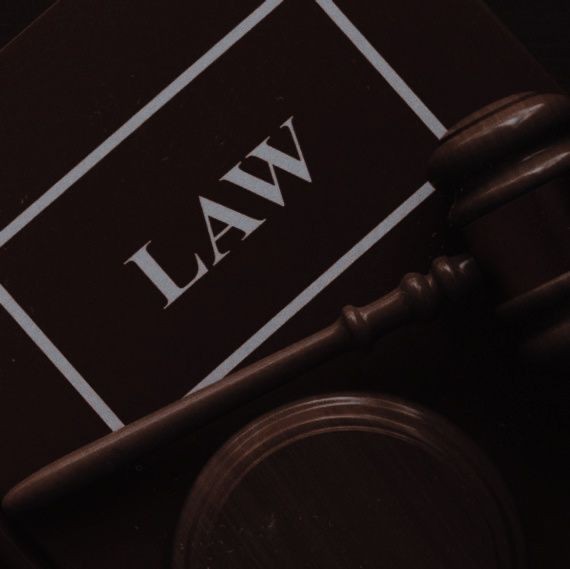Effect of death, marriage and insolvency of parties to a suit
Order 22 of the Code of Civil Procedure, 1908 is the enabling provision for the creation, assignment or devolution of interest during the pendency of suits as well as appeals, but not to execution proceedings.Such creation, assignment or devolution may occur on
- the death of a party- Rules 1 to 6
- the marriage of a party-Rule 7
- insolvency of a party- Rule 8 or
- on assignment of interest-Rule 10
Death of a party- Rules 1 to 6
Where the sole plaintiff dies, and if the right to sue survives, suit will not abate. It can be continued by the heirs and legal representatives of the deceased plaintiff, and if the right to sue does not survive, suit will come to an end- Rule 1. Where one of the several plaintiff dies and the right to sue survives to the surviving plaintiff or plaintiffs, the court will make an entry to that effect and proceed with the suit by the surviving plaintiff or plaintiffs - Rule 2.
Where one of the several plaintiffs dies and the right to sue does not survive to the surviving plaintiff or plaintiffs, or where the sole plaintiff dies and the right to sue survives, the court on an application by the legal representative of the deceased plaintiff will make him a party and proceed with the suit. Where no such application is made within the period of limitation (90 days), the suit shall abate so far as the deceased plaintiff is concerned. On an application by the defendant, the court may award costs, which might have incurred by him in defending the suit, from the estate of the deceased plaintiff. - Rule 3(1),(2)
Where the plaintiff dies after the hearing and before pronouncing the judgment, the suit shall not abate-Rule 6.
Death of the defendant
Where the sole defendant dies and the right to sue continues, the suit shallnot abate, and can be continued against the heirs and legal representatives of thedeceased defendant- Rule 1.
Where one of the several defendants dies and the right to sue survives against the surviving defendant or defendants, or where the sole surviving defendant dies, and the right to sue survives, court, on application by the legal representatives of the deceased defendant, will make him a party and proceed with the suit - Rule 2.
Where no such application is made, within the period of limitation (90 days), the suit shall be abate as against the deceased defendant. The court may if it thinks fit and proper, exempt the plaintiff from substituting the legal representative of a non-contesting or proforma defendant and pronounce the judgment, notwithstanding the death of such defendant. Where the plaintiff is ignorant of the death of the defendant and for that reason is unable to make an application for substitution of the legal representative of the deceased defendant within the period of limitation, and the suit stands abated, he may make an application for settingaside such abatement within the period of limitation (90) days stating that due to ignorance of the death of the defendant, he could not make an application within time. The court shall consider the application, with due regard to the facts of such circumstances- Rule 4.
Where the defendant dies after the hearing of the case and beforepronouncement of the judgment, the suit shall not abate- Rule 6.
Determination as to question, who is the legal representative
Where the question arises as to whether any person is or is not the legal representative of a deceased plaintiff or a deceased defendant, it is the duty of the court to decide such question. The court may hold an inquiry and determine such but not a lengthy or elaborate one. Where such a question arises before the appellate court, that court may direct the subordinate court to inquire into and give its finding on the dispute as to who is the legal representative of the deceased - Rule 5 Proviso.
Pleader's duty to communicate death
Rule 10A imposes an obligation on the pleader of the parties to communicateto the Court the factum of death of the party represented by him.
Effect of abatement of a suit
Where a suit abates or is dismissed due to the failure of the plaintiff to bring the Legal Representatives of the deceased in the party array, no fresh suit will lie on the same cause of action. The remedy available to the person or the personwho claims to be the legal representative is to get the abatement set aside -Rule 9.
Marriage of the party -Rule 7
Marriage of a female plaintiff defendant shall not cause the suit to abate. Where the decree is passed against a female defendant, it may be executed against her alone. A decree in favour of or against a wife, where the husband is legally entitled to the subject matter of the decree or is liable for the debt of his wife may, with the permission of the court, be executed by or against him - Rule 7.
Insolvency of the parties - Rule 8
Insolvency of the plaintiff shall not cause the suit to abate and can be continued by his assignee or receiver for the benefit of his creditors. But if the assignee or receiver declines to continue the suit, or to give security for costs, as Ordered by the court, the court may, on the application of the defendant, dismiss the suit onthe ground of the plaintiff's insolvency. Court may also award the defendant costs for defending the suit, to be paid as to debt against the plaintiff's estate Rule 8. Rule 8 does not apply in cases where the defendant becomes insolvent. In such cases, court may stay the suit or proceedings pending against the defendant whohas been adjudged as insolvent. [Kalachand v. Jagannath AIR 1927 PC 106].
Devolution of interest - Rule 10
If, during the pendency of a suit, any interest in the suit has passed from the plaintiff or the defendant to any other person, the suit may with the leave of the court, b continued by or against the person to or upon whom such interest has come or devolved. It is based upon the general principle that the trial of a suit cannot be brought to an end merely because the interest of a party in the subject matter of the suit has devolved upon another during the pendency of the suit, and the suit may be continued against the person acquiring interest with the leave of the Court- [Karuppuswamy v. Ramamurthy AIR 1993 SC 2324].

























